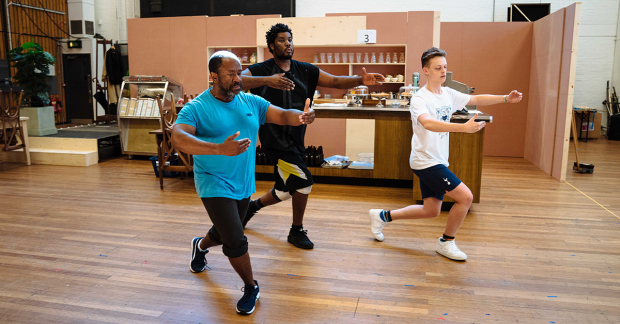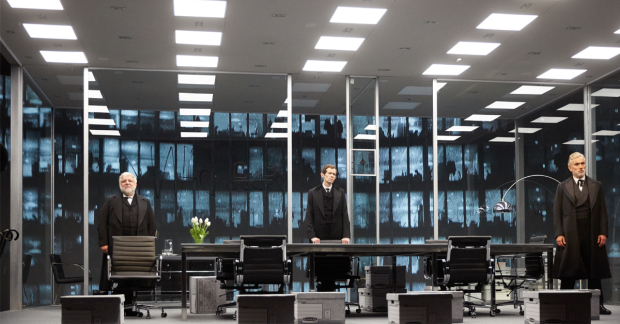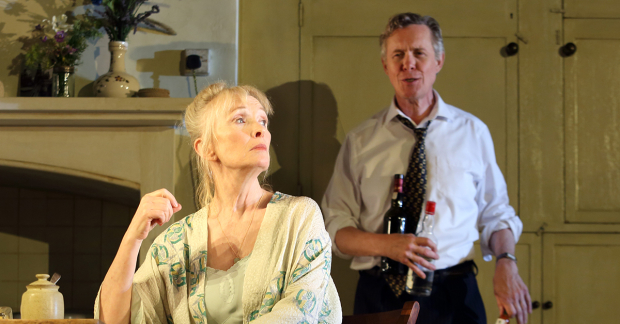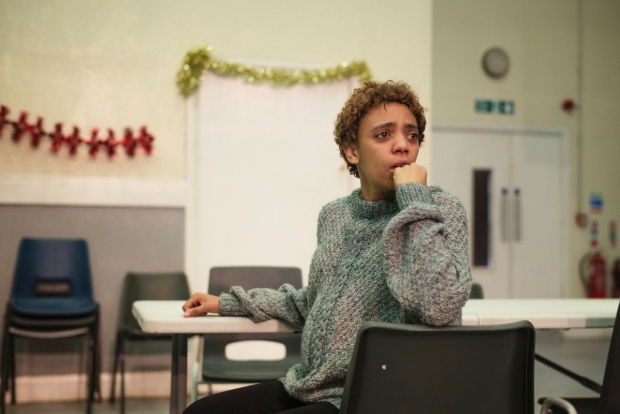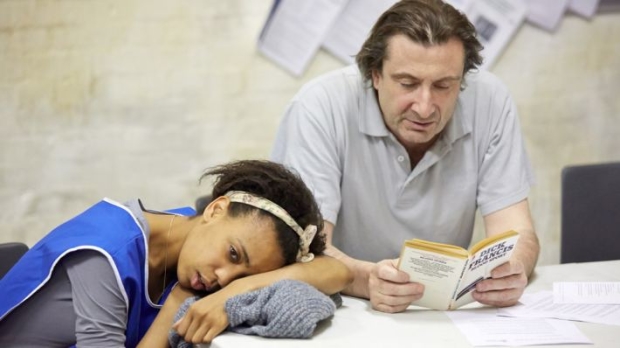Review: Faith, Hope and Charity (National Theatre)
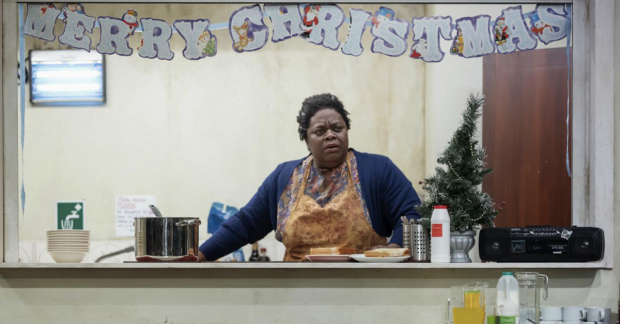
© Sarah Lee
No one with one open eye and half a heart could doubt the urgency and truthfulness of Alexander Zeldin's new play about the state of modern Britain, after years of austerity have stripped away the most fragile safety nets tethering the poor and the desperate to some kind of life.
It's set in a crumbling community centre where the holes in the roof let the constant rain pour in and where there is a bird trapped in the attic. But this unprepossessing space, captured in all its grimy, utilitarian dinginess by Natasha Jenkins' set, is a haven for the people who come here. They arrive because they are hungry, to eat the meals dispensed by the capable, kindly Hazel (Cecilia Noble).
But they stay to sing in the choir set up by Nick Holder's bumbling, good-hearted Mason, who has escaped his own difficult past enough to dispense sub psychological counselling – "it's all growth" – along with plates of biscuits and cups of tea. They linger too because they have nowhere else to go. Karl (Dayo Koleosho) sits quietly waiting for his carer, who rarely arrives; Bernard (Alan Williams), who once spent seven years in Italy, just walking around "like St Francis" panics when he cannot retreat here.
Most desperate of all is Susan Lynch's Beth, who is fighting to stop her four year-old daughter Faith from being taken permanently into care; her teenage son Marc attempts to support her and is in turn supported by the others. Hazel's strong arm reaches out to all of them, trying to do something, anything, against incredible odds that stack the system against those who have most need of its support.
Written by Zeldin, who also directs, over a two-year research period, the piece is full of insight and truth. It's bleak, but not without humour and warmth. The audience, as it did in Zeldin's Love and Beyond Caring, his two powerful previous works about the tragedy of a society that has forgotten how to care, shares the space with the characters, lit by the same fluorescent strip lights, sitting on similar chairs. It is a quiet challenge to our empathy, as stories emerge and conflicts arise. Nothing seems to be happening (there's a long section where Mason just puts out tables), the mood is quiet and intense, but our understanding is deepening even as we watch.
The performances are uniformly superb, with particularly fine work from Williams as a gently lost soul and from Bobby Stallwood as 16 year-old Marc. His face when his mother turns on him and blames him for the loss of his sister, is a mask of suffering; his desperation is so intense you want to turn away. And everything is held together by a magnificent performance by Cecilia Noble who manages to show the weariness of Hazel as well as her goodness, while never suggesting that she is a saint. Noble has the ability – perfect for so naturalistic and quiet a drama – of seeming simply to be when she is on a stage. There's always thought and feeling pulsing beneath her skin; it's hard to tear your eyes away.
I had some reservations in ways I haven't previously about Zeldin's work. One encounter between Beth and Mason feels unnecessarily melodramatic, for all the sensitivity of the playing. I was also uneasy about the fact that every character we fully meet has some kind of psychological difficulty; it seems to me that you can need food and company without being traumatised in quite that way.
Nevertheless, Faith, Hope and Charity seems to me an utterly necessary and deeply compassionate depiction of the kinds of lives that it is all too easy to ignore. It seems artless, yet is a superbly delicate and artful piece of work about something that is rarely dramatised: the ties that bind people together, the simple act of trying to be kind.
The scene where everyone comes together to sing "You've Got the Music in You" is without doubt the most moving and soul-destroying you're likely to see in a theatre this year – a reminder of the indomitability of the human spirit which can still find joy in music and plant flowers to fight the onset of despair. And an indictment of a state that forgets that.



